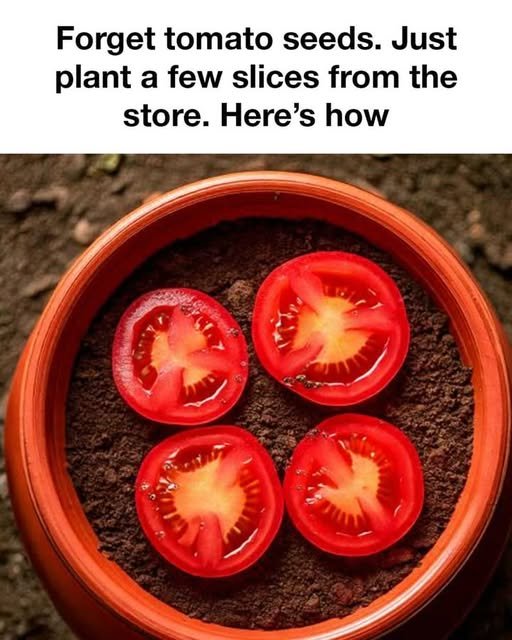Growing tomatoes from slices is an innovative and cost-effective method for cultivating your own tomato plants. This approach is perfect for gardeners who want to start their plants from scratch without purchasing seeds.
By using slices from a ripe tomato, you can easily propagate new plants, making it an accessible option for both novice and experienced gardeners.
Understanding the Benefits of This Method
This method of growing tomatoes offers several benefits. It is an economical way to start a garden, as it eliminates the need to buy seeds. Additionally, it allows you to utilize leftover tomatoes that might otherwise go to waste. This method is also a fun and educational project for families and children, providing a hands-on learning experience about plant growth and reproduction.
Selecting the Right Tomato for Slicing
Choosing the right tomato is crucial for success. Opt for a ripe, healthy tomato that is free from blemishes and diseases. Heirloom and organic tomatoes are often preferred because they are more likely to produce viable seeds. Avoid hybrid varieties, as they may not produce true-to-type offspring.
Preparing the Tomato Slices for Planting
Begin by slicing the tomato into quarter-inch thick slices. Ensure each slice contains several seeds. Lay the slices on a paper towel and let them dry for a day or two to prevent mold growth when planted. This drying step is essential to ensure the seeds are ready for germination.
Choosing the Ideal Planting Medium
Select a well-draining potting mix that is rich in organic matter. A mix specifically formulated for seed starting is ideal, as it provides the right balance of nutrients and aeration. Avoid using garden soil, which may contain pathogens and pests that could harm the seedlings.
Planting the Tomato Slices
Fill a seed tray or small pots with the prepared potting mix. Place the tomato slices on top of the soil, spacing them about an inch apart. Cover the slices with a thin layer of potting mix, about a quarter-inch thick, to ensure the seeds are in contact with the soil.
Providing Optimal Growing Conditions
Tomato seeds require warmth and moisture to germinate. Place the planted slices in a warm location with indirect sunlight. Maintain a consistent temperature of around 70-75°F (21-24°C). Keep the soil moist but not waterlogged by misting it regularly with water.
Caring for the Seedlings
Once the seeds germinate and seedlings emerge, provide them with ample light. A sunny windowsill or grow lights can help ensure they receive 12-16 hours of light per day. Thin out weaker seedlings to prevent overcrowding and encourage strong growth in the remaining plants.
Transplanting the Seedlings to a Larger Space
When the seedlings have developed their first true leaves, they are ready to be transplanted. Carefully move them to larger pots or directly into the garden. Ensure they are spaced adequately to allow for growth, typically 18-24 inches apart in a garden bed.
Managing Pests and Diseases
Monitor your tomato plants regularly for signs of pests and diseases. Common issues include aphids, blight, and fungal infections. Use organic pest control methods, such as neem oil or insecticidal soap, and practice crop rotation and proper sanitation to minimize disease risk.
Harvesting Your Homegrown Tomatoes
Tomatoes are ready to harvest when they are fully colored and slightly soft to the touch. Gently twist or cut the fruit from the vine to avoid damaging the plant. Enjoy your homegrown tomatoes fresh, or use them in your favorite recipes.
Troubleshooting Common Issues
If your seedlings are not thriving, consider factors such as light, temperature, and watering practices. Leggy seedlings may indicate insufficient light, while yellowing leaves could suggest overwatering. Adjusting these conditions can help improve plant health.
Conclusion and Final Tips
Growing tomatoes from slices is a rewarding and sustainable gardening method. With the right care and attention, you can enjoy a bountiful harvest of fresh tomatoes. Remember to be patient, as gardening is a process that requires time and dedication. Happy gardening!



